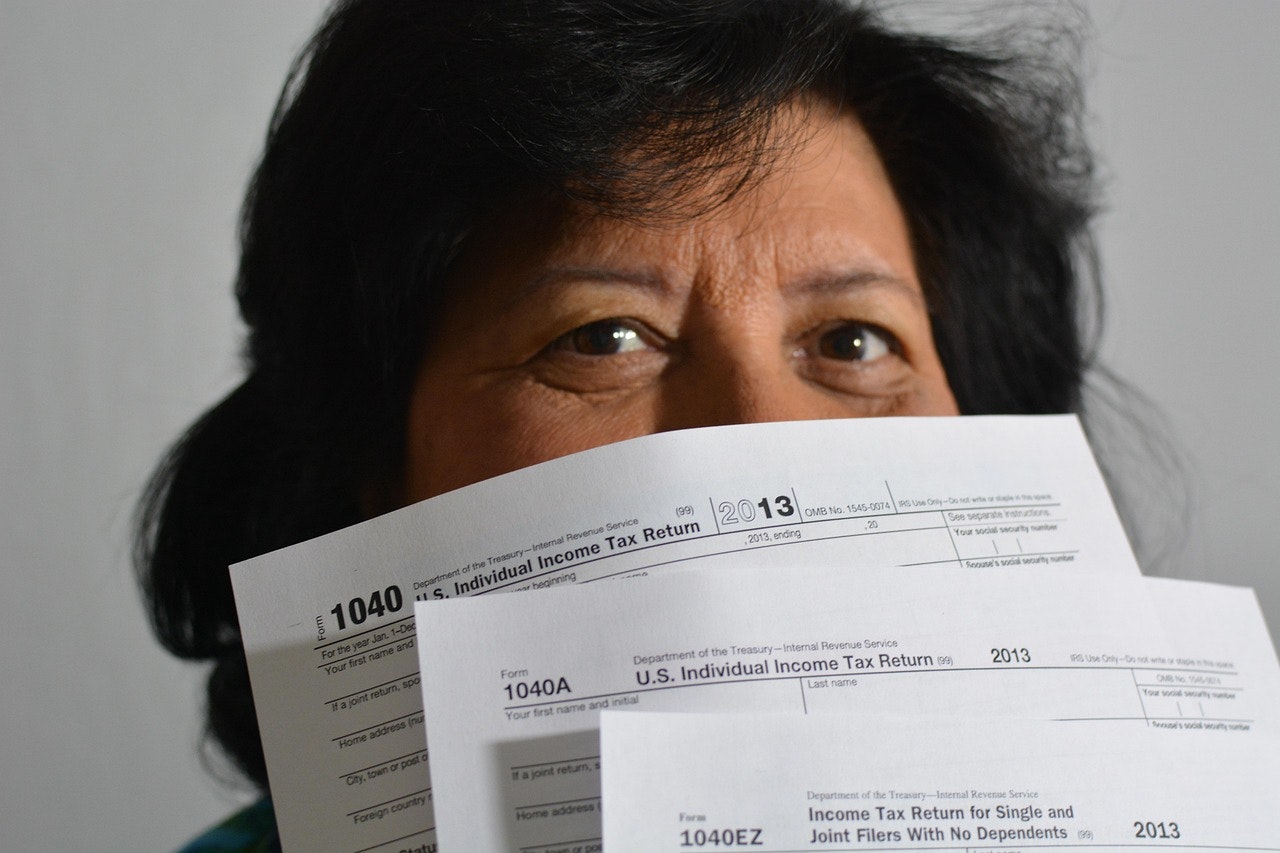Behind on Your Tax Returns? Here's Your Path Forward
If you're reading this with a stack of unfiled tax returns weighing on your mind, take a deep breath. You're not alone, and more importantly, it's never too late to get back on track. Whether you're behind by one year or ten, understanding your options and the real consequences can help you move forward with confidence rather than fear.
The longer you wait, the more complicated and expensive the situation becomes. But here's the good news: the IRS generally prefers working with taxpayers who come forward voluntarily rather than tracking them down. Let's explore what you're really facing and how to handle it strategically.
Understanding the IRS Timeline: How Far Back Can They Reach?
One of the most common questions we hear is, "How many years back can the IRS come after me?" The answer depends on your specific situation:
The Three-Year Rule (Standard Audit Period)
For filed returns, the IRS generally has three years from the filing date to audit you and assess additional taxes. If you filed your 2020 return on time in April 2021, the IRS typically has until April 2024 to audit that return. This is why most tax professionals recommend keeping records for at least three years.
The Six-Year Rule (Substantial Understatement)
If you underreported your income by more than 25%, the IRS has six years to audit that return. For example, if you reported $80,000 in income but actually earned $110,000, you've crossed that 25% threshold, giving the IRS double the time to discover the discrepancy.
The Forever Rule (Unfiled or Fraudulent Returns)
Here's the critical point: If you never file a return, there's no statute of limitations. The IRS can come after you indefinitely for unfiled returns. Similarly, if you file a fraudulent return, the clock never starts ticking. This is why not filing is often worse than filing and owing—at least filing starts the statutory clock.
Collection Limitations
While the IRS can assess taxes forever on unfiled returns, they only have 10 years to collect once a tax has been assessed. This Collection Statute Expiration Date (CSED) is crucial for tax resolution strategies. However, certain actions like filing for bankruptcy, making an offer in compromise, or requesting a payment plan can extend this period.
The Refund Window: Use It or Lose It
While the IRS can pursue you indefinitely for unfiled returns where you owe money, the rules are quite different when they owe you:
You only have three years from the original due date to claim a refund.
This means:
- Your 2021 refund (return due April 15, 2022) must be claimed by April 15, 2025
- Your 2020 refund (return due April 15, 2021) must be claimed by April 15, 2024
- Anything older than three years? That money now belongs to the U.S. Treasury permanently
We've seen heartbreaking cases where clients lost thousands in refunds simply because they waited too long. Don't let embarrassment or procrastination cost you money you're rightfully owed.
Understanding Late Filing Penalties
The penalty structure for late filing can be severe, but it's important to understand exactly how it works:
Failure-to-File Penalty
- 5% per month of unpaid taxes, up to a maximum of 25%
- Minimum penalty of $485 (for returns over 60 days late) or 100% of the tax owed, whichever is less
- Critical point: This penalty only applies if you owe taxes. If you're due a refund, the failure-to-file penalty is $0
Failure-to-Pay Penalty
- 0.5% per month of unpaid taxes
- Can be reduced to 0.25% if you're on an IRS payment plan
- Continues until the tax is paid in full
Interest Charges
- Compounds daily on both unpaid taxes and penalties
- Rate adjusts quarterly (currently around 8% annually)
- Cannot be waived except in very limited circumstances
Strategic Approaches to Getting Current
When you're ready to tackle those unfiled returns, strategy matters. Here's how we help clients minimize the damage:
- The Rolling Refund Strategy
This is one of the most powerful techniques for reducing penalties when catching up on multiple years. Here's how it works:
Instead of filing all your late returns simultaneously, we file them strategically:
- Start with the oldest return that's still within the three-year refund window
- When processing that return, we apply any refund to the following year's taxes instead of requesting a check
- This creates a payment date that predates your actual filing, reducing penalties and interest
Example: You haven't filed 2021, 2022, or 2023. Your 2021 return shows a $3,000 refund, 2022 shows you owe $2,500, and 2023 shows you owe $1,500.
If we file them strategically:
- File 2021 first, applying the $3,000 refund to 2022
- This covers your 2022 liability and leaves $500 to apply to 2023
- Your 2023 balance is reduced to $1,000, with penalties calculated only on this amount
By rolling refunds forward, you've essentially made those tax payments years earlier, dramatically reducing penalties and interest.
- The Voluntary Disclosure Approach
Coming forward before the IRS contacts you has significant advantages:
- Demonstrates good faith effort to comply
- May qualify you for penalty abatement programs
- Avoids criminal prosecution in cases of willful non-filing
- Often results in more favorable payment arrangements
- The "Quiet" Filing Method
For taxpayers who don't owe money or expect refunds, sometimes the best approach is simply to file the returns without fanfare:
- File all returns at once through normal channels
- No need to attach explanations or draw attention
- The IRS processes millions of late returns annually—yours won't stand out if you don't owe
- First-Time Abatement
If you have a clean compliance history (filed and paid on time for the three years before the penalty year), you may qualify for First-Time Abatement:
- Can eliminate failure-to-file and failure-to-pay penalties for one year
- Doesn't eliminate interest, but can save thousands in penalties
- Must be requested after filing the return and paying or arranging to pay the tax
Special Considerations for Non-Filers
When the IRS Files for You (Substitute for Return)
If you don't file, the IRS may eventually file a Substitute for Return (SFR) on your behalf. These are never in your favor:
- No deductions beyond the standard deduction
- No credits claimed
- Often results in a much higher tax bill than if you'd filed yourself
- Filing your own return can replace the SFR and often dramatically reduces what you owe
State Tax Implications
Don't forget about state taxes:
- Many states have different statutes of limitations
- State penalties can be as severe as federal ones
- Some states are more aggressive in pursuing non-filers
- Catching up federally often triggers state tax notices
Impact on Social Security and Medicare
For self-employed individuals, not filing means:
- No Social Security credits earned for those years
- Potential impact on future Social Security benefits
- Medicare eligibility could be affected
- These credits can sometimes be recovered by filing late, but only within specific time limits
Red Flags That Increase Scrutiny
Certain situations make the IRS more likely to pursue non-filers aggressively:
- High income earners: W-2s and 1099s over certain thresholds trigger automatic notices
- Business owners: Especially those with employees or 1099 contractors
- Prior year filers: If you filed last year but not this year, you're more likely to be noticed
- Information return mismatches: When 1099s and W-2s don't match a filed return
- Real estate transactions: Property sales are reported to the IRS and often trigger inquiries
Your Action Plan: Getting Back on Track
Ready to resolve your unfiled returns? Here's your roadmap:
Step 1: Gather Information
- Collect W-2s, 1099s, and other tax documents
- Request wage and income transcripts from the IRS for missing documents
- Compile deduction documentation (even if incomplete)
Step 2: Prioritize Your Filings
- File returns within the refund window first (last three years)
- Address years with the highest liability next
- Consider the rolling refund strategy for maximum benefit
Step 3: Prepare for Payment
- Calculate estimated liability for each year
- Explore payment options (installment agreements, offers in compromise)
- Set aside funds for professional help—it often pays for itself in penalty savings
Step 4: Maintain Compliance Going Forward
- Set up a system to avoid future filing delays
- Make estimated tax payments if self-employed
- Adjust withholding to avoid owing
When Professional Help Makes Sense
While some taxpayers can handle catching up on their own, professional assistance often pays for itself through:
- Penalty reduction strategies we know what works and what doesn't
- IRS representation if you're already receiving notices
- Accurate calculations ensuring you don't overpay
- Strategic timing to minimize overall liability
- Peace of mind knowing it's handled correctly
Don't Wait Another Day
Every day you delay costs you money in additional penalties and interest. More importantly, the stress of unfiled returns affects your health, relationships, and peace of mind. The IRS isn't going away, but the problem is entirely solvable with the right approach.
At Desert Rose Tax & Accounting, we've helped hundreds of clients get back on track with the IRS. We understand the anxiety you're feeling, and we're here to guide you through the process without judgment. Our systematic approach minimizes penalties while ensuring full compliance.
Whether you're behind by one year or ten, we'll create a customized plan to:
- File all delinquent returns strategically
- Minimize penalties using every available strategy
- Negotiate payment arrangements you can afford
- Ensure you never fall behind again
Take the First Step Today
Don't let another tax season pass while you're still carrying the burden of unfiled returns. Visit us at www.desertrosetax.com to schedule a confidential consultation. We'll review your situation, explain your options, and create a clear path forward.
Remember: The IRS is far more cooperative with taxpayers who come forward voluntarily. Make today the day you start fresh.
Edward Ethington, CPA, CFP®, MBA
Desert Rose Tax & Accounting
Your Partners in Tax Resolution
www.desertrosetax.com
This blog is for informational purposes only and should not be considered personal tax advice. Tax laws are complex and change frequently. Please consult with a qualified tax professional at Desert Rose Tax & Accounting for guidance specific to your situation.























